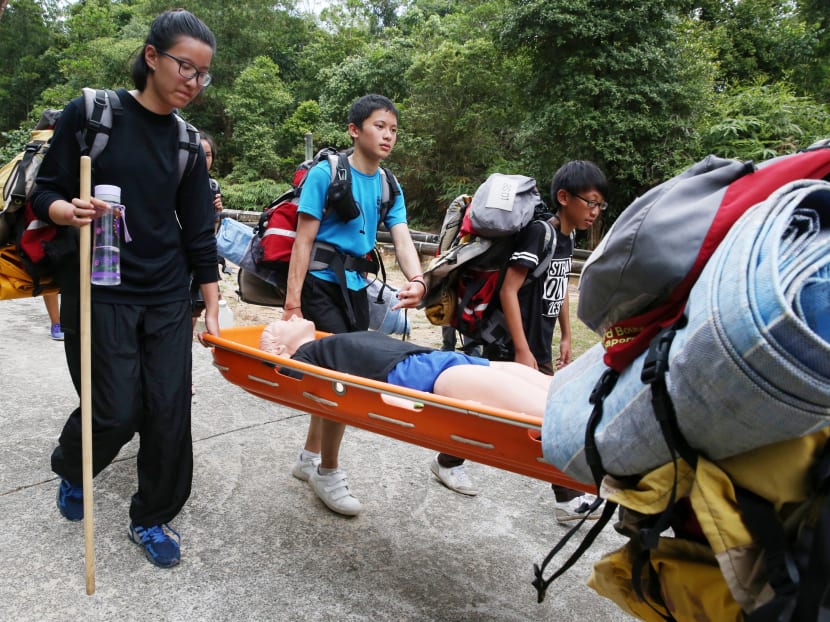Survey points to social class divide among Singaporeans
SINGAPORE — More than half of Singapore residents have a higher chance of mixing with people of other races and age groups than those of a different social standing, according to a new survey by local think tank, the Institute of Policy Studies (IPS).

More than half of respondents to a survey said that they are more likely to mix with people of other races and ages than those in different social class. TODAY file photo
SINGAPORE — More than half of Singapore residents have a higher chance of mixing with people of other races and age groups than those of a different social standing, according to a new survey by local think tank, the Institute of Policy Studies (IPS).
And the social class divide among Singaporeans is more apparent than it seems. The survey, called ‘A Study on Social Capital in Singapore’, examined social ties here and found private housing dwellers tend to mix with people living in the same housing type, instead of those in public flats.
People from so-called “elite” schools tend to socialise with those who went to similar schools.
Dr Gillian Koh, IPS’ deputy director (research) and one of the three researchers behind the survey, said there is a “natural tendency for people to gather like with like”.
The survey showed that there is “a very strong tendency” for people of the same social class to flock together.
Now that this has been identified, there is a need to prevent the issue from becoming a political flashpoint, she said. The social class divide could lead to a “winners versus losers” situation, which can be seen in other countries and affect political stability.
“It has translated into politics where people have less trust in the established political institutions and political leaders because they think that it’s the establishment that has done them in,” said Dr Koh.
“In Singapore’s case, the Government has to ensure it doesn’t take its eyes off the ball and continues to be an establishment dedicated in implementing policies and programmes to ensure that there is a fair and just society.”
The survey was conducted from Jan 2016 to Oct 2017 and covered 3,000 Singaporeans as well as permanent residents.
More than half of the respondents scored a low rating of 0 when it came to having ties with people from different housing types and educational status.
They were asked wide ranging questions such as who they spent the most time with doing social activities apart from their families, who do they played sports with, as well as who they borrowed money from.
They were also asked to name people in their social circle - beyond family members - in order to gauge the nature of the ties they have with others.
The survey showed that the respondents had a total of 17,413 ties – or an average of 5.8 ties per individual.
Explaining why people of different social class tend to socialise among themselves, sociology professor Vincent Chua from the National University of Singapore (NUS) — one of the researchers — noted that there are fewer private residents to begin with, since about 80 per cent of Singaporeans live in public housing. There are also cultural differences such as different interests as well as in mannerisms and behaviour.
The survey also showed that those living in private properties or who studied in elite schools have ties with an average of about 2.6 persons from a more modest background. In comparison, the average was about 0.8 for ties between those residing in an HDB flat or who are from non-elite schools and people outside their social class.
This could again be due to cultural differences, prompting those of lower standing to be apprehensive about socialising with others seen as having a “higher class” background, said researchers.
But there have been efforts to mix people of different backgrounds, they noted. For example, all Secondary Three students go through the Outward Bound Singapore expedition-based camp, which encourages students from all walks of life to go through similar experiences and interact with one another, regardless of their school or type of housing.
However, the survey results show that the Government has to “redouble” its efforts to encourage more social mixing. This could be done through volunteer work as well as encouraging people to utilise public sports facilities.
The public has to do its part to be more inclusive, said Dr Koh.
“On some basis, you will never meet. On another basis, at the workplace or through sporting activities, you may meet and you mix. And you dont think about what’s my status, what’s my educational background. And we must create more and more opportunities to beat the natural tendency of dividing,” she added.









